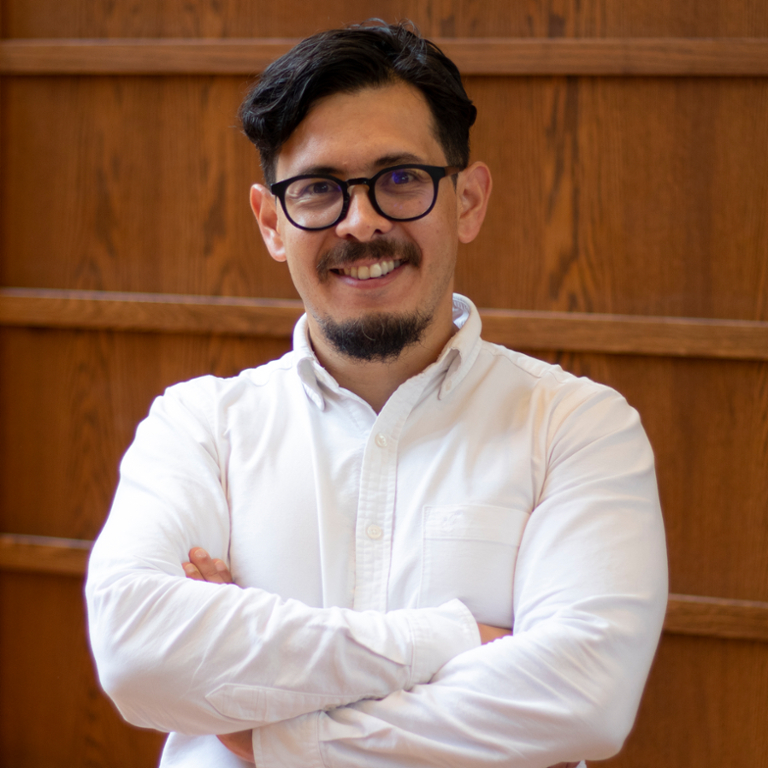Q&A with Sergio Ospina Romero, an advocate for interdisciplinary work and communication
Sergio Ospina Romero, assistant professor of musicology in the Jacobs School of Music, is a musician, anthropologist and a historian. He has focused his work on studying early sound production methods. He has joined the IUPAH cohort to work closely with scholars from different backgrounds to promote interdisciplinary research.
Question: What are your career goals?
Answer: One of my goals is to be truly an engaging scholar, that is, to be widely read across the humanities and beyond, not only by academics within my own discipline; and not only read but also to excel as a teacher, mentor and presenter in diverse scenarios. Thus, I aim to be an engaging writer, one that advances new terrain in the arena of the cultural history of music and that sets new trends and paradigms in matters of narrative, methodology and historical interpretation.
Q: What is your greatest achievement as a scholar?
A: I have written two books so far. The second of them, "Fonógrafos ambulantes" (forthcoming), was awarded the honorary mention in the Premio de Musicología de Casa de las Américas, allegedly the most prestigious award in musicology in the Spanish-speaking world. I was also recently awarded the Klaus P. Wachsmann Prize of the Society for Ethnomusicology in recognition of my research on player-pianos.
Q: What are your research interests?
A: For the most part I research and write about early sound reproduction technologies (cf. phonographs, gramophones, player-pianos), the dawn of the sound recording industry and jazz. All this usually in relation to Latin America and the Caribbean and in the early twentieth century.
Q: What do you see as the importance of this fellowship and related project?
A: This fellowship represents not only a recognition of an emerging and promising field of study, but the potential and need of interdisciplinary research and dialogues. Besides being an outstanding platform to learn from and work along a fascinating cohort of colleagues, this fellowship is an incredible opportunity to move forward towards the completion of my first book-length monograph in English, titled "Talking Machine Empires: Phonograph Culture in Latin America and the Caribbean during the Acoustic Era."
